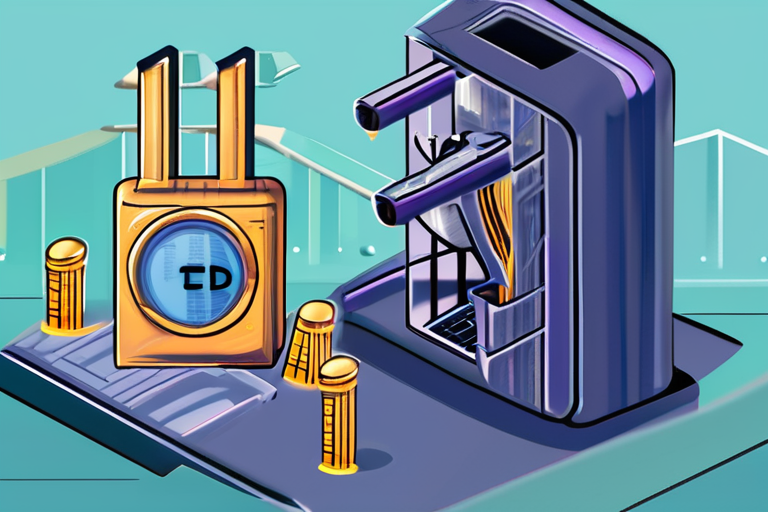Centralized Exchanges Remain Favorite Crypto Money Laundering Tool for Criminals
In a stark reminder of the ongoing challenge in combating cryptocurrency-related money laundering, experts argue that centralized exchanges continue to serve as the primary gateway for illicit funds. This assertion comes despite recent high-profile convictions and increased regulatory scrutiny.
According to Dr. Jan Philipp Fritsche, managing director of Oak Security, "Focusing regulatory energy on mixers while letting exchanges remain the primary fiat gateways for illicit funds is like locking the windows while leaving the front door wide open." Fritsche's statement highlights the paradoxical situation where regulators have been targeting mixers, such as Tornado Cash, while overlooking the vulnerabilities of centralized exchanges.
The conviction of Roman Storm, co-founder of Tornado Cash, in a New York federal court this summer was touted as a significant victory in the fight against crypto money laundering. However, experts caution that this development only scratches the surface of the issue. "While the prosecution's efforts are commendable, they do not address the root problem," Fritsche noted.
Centralized exchanges have long been criticized for their lack of transparency and accountability. These platforms often facilitate transactions between users without adequate Know-Your-Customer (KYC) or Anti-Money Laundering (AML) protocols in place. This creates an environment conducive to illicit activities, as individuals can easily launder funds through these exchanges.
The issue is not new; regulators have been aware of the vulnerabilities of centralized exchanges for years. However, efforts to address these concerns have been slow to materialize. "Regulators have been focusing on mixers, which are indeed a threat, but they are also a symptom of a larger problem," Fritsche explained.
The implications of this situation extend beyond the cryptocurrency space. As more individuals and institutions turn to digital assets for investment or financial transactions, the risk of money laundering increases. "If we do not address the vulnerabilities of centralized exchanges, we will continue to see illicit funds flowing through these platforms," warned Fritsche.
In recent months, there have been signs of increased regulatory attention on centralized exchanges. In July, the U.S. Treasury Department's Financial Crimes Enforcement Network (FinCEN) issued a warning about the risks associated with cryptocurrency mixers and exchanges. However, experts argue that more needs to be done to address the root causes of money laundering in the crypto space.
As the debate surrounding cryptocurrency regulation continues, one thing is clear: centralized exchanges remain a significant vulnerability in the fight against money laundering. Until regulators and industry leaders take concrete steps to address these concerns, the risk of illicit funds flowing through these platforms will persist.
Background: Centralized exchanges are online platforms that facilitate transactions between users, often without adequate KYC or AML protocols in place. Mixers, such as Tornado Cash, are designed to anonymize cryptocurrency transactions, making them difficult to track.
Additional Perspectives:
"Regulators need to take a more holistic approach to addressing money laundering in the crypto space," said Sarah Jones, a financial crimes expert at a leading consulting firm.
"Centralized exchanges are not the only issue; we also need to address the lack of transparency and accountability within these platforms," added Fritsche.
Current Status: The U.S. Treasury Department's FinCEN has issued warnings about the risks associated with cryptocurrency mixers and exchanges. However, experts argue that more needs to be done to address the root causes of money laundering in the crypto space.
Next Developments: As regulatory attention on centralized exchanges continues to grow, industry leaders are expected to take concrete steps to address these concerns. This may include implementing stricter KYC and AML protocols or exploring alternative solutions, such as decentralized exchanges.
*Reporting by Coindesk.*



 Hoppi
Hoppi

 Hoppi
Hoppi

 Hoppi
Hoppi

 Hoppi
Hoppi
 Hoppi
Hoppi

 Hoppi
Hoppi










